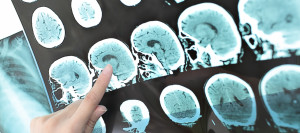What is Clinical Science?
Written by: Scott Lilienfeld, Ph.D., Emory University, and Bethany A. Teachman, Ph.D., Professor, University of Virginia Department of Psychology
Clinical science is grounded in the belief that a scientific approach should guide the many roles of a clinical psychologist, including providing psychotherapy, conducting assessments, and conducting research, teaching, mentoring, consulting, or program evaluation. One need not be a researcher to be a clinical scientist. Psychologists engaged in full-time practice are clinical scientists if their work is continually informed by scientific principles and the best available research evidence. Conversely, not all researchers are clinical scientists. If researchers do not avail themselves of the crucial methodological safeguards afforded by science, they are not clinical scientists.
What, in turn, is science? Many people think of science as an accumulated body of knowledge in a given field of study. Yet science is far more than a collection of facts and figures. Science is a set of finely honed tools designed to make it likely that our tests can produce the same findings when the tests are repeated, to protect against the common tendency to ‘see what we want to see’ (known as confirmation bias), and to minimize errors in the inferences we draw. In clinical psychology, such safeguards include research studies that allow us to determine how the treatment we’re testing compares with to other treatments, or that attempt to isolate a given treatment’s unique effects. Moreover, one of the beauties of science is that it is self-correcting because we continue to conduct more studies and test our hypotheses in new ways. This means that we can catch and correct mistakes using scientific methodology, so our understanding of mental illness continues to improve. Together, this means that when you or a loved one seek care, you can have some confidence that the assessment or treatment you receive has been well tested and is selected because of its likelihood of producing positive results.

A clinical science approach does not imply that we should disregard patient preferences, clinical intuition, or avoid being creative. These all play an invaluable role in therapeutic practice and in generating fruitful research ideas, including hypotheses concerning novel clinical interventions. But the long history of mental health care, including psychiatry and clinical psychology, has taught us that relying on intuition alone or what ‘sounds good’ can be seriously mistaken and even dangerous. For example, interventions such as prefrontal lobotomy, insulin coma therapy, cathartic therapies (such as repeatedly screaming or hitting a pillow when angry), and DARE (Drug Abuse Resistance Education) were all once assumed by many scholars to be effective. Yet, subsequent research showed them to be largely ineffective and, in certain cases, even harmful. The scientific approach can help us to figure when our intuitions are accurate and when they are not.
Only a clinical science approach ensures that our clients receive diagnostic and treatment techniques that have survived the scrutiny imposed by rigorous research methodology. We would expect no less of traditional domains of medicine, and we should demand no less of mental health care.
To learn more, visit the Society for a Science of Clinical Psychology.
- A Revolution in the Air: The Wright Brothers Take to the Sky on December 17, 1903
- Musings on National Violin Day
- Making the Promise Real: How a UN Tax Convention Can Fulfill the UNDHR’s Vision
- UVA Club of Atlanta: Virtual Pilates Class
- Virginia Club of New York: Annual Book Club Planning Meeting
- UVA Club of New Orleans: Hoo-liday Party